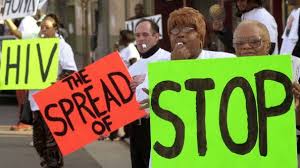Source: thehill.com
When we celebrate World AIDS Day less than a month from now, Americans will have something to celebrate. Innovative treatments have transformed a disease that a few decades ago would have been a death sentence into a diagnosis that, with support, is manageable.
While lawmakers should acknowledge this progress, they should not consider this crisis solved. People living with HIV and AIDS often live on the edge of poverty and homelessness. For these individuals, access to local, state, and federal support will determine whether or not they survive.
Keeping individuals with HIV and AIDS alive not only requires access to quality health care, it requires that individuals are stably housed. I have been working with people living with HIV and AIDS for more than two decades. I know that without the Housing Opportunities for People with AIDS (HOPWA) program, U.S. efforts to address this disease would not have been as successful.
This program remains as important as it was when it was implemented in 1990, which is why federal lawmakers must reject potential cuts to it.
The Senate has approved just $330 million for HOPWA for fiscal year 2020, a figure that represents a 21 percent cut from the FY 2019 enacted level of $393 million. The Senate’s allocation is $100 million lower than what the U.S. House of Representatives approved this summer, and it would reduce funding back to levels not seen in a decade.
These cuts would come at a moment when social services agencies like CAMBA are trying to serve more people.
The 1.1 million Americans currently diagnosed with HIV and AIDS are living longer, and the country continues to see thousands of new cases each year. According to the Centers for Disease Control (CDC) about 40,000 Americans receive an HIV diagnosis every year. Demand for HOPWA is growing.
While it might be easy for some federal lawmakers to dismiss this issue as one that only affects urban centers like New York City or Los Angeles, current data reveal that assumption is false. According to the CDC, HIV diagnoses are not evenly distributed across the country. In fact, of the 38,739 new HIV diagnoses in the United States in 2017, more than half (19,968) were made in the southern part of the United States.
No matter where these men and women live, they are more likely than their fellow Americans to face poverty and housing instability.
According to the National Alliance to End Homelessness, individuals living with HIV and AIDS are three to six times more likely than members of the general population to be homeless. Or, as the Congressional Research Service found, studies of the relationship between HIV and homelessness have found the disease’s prevalence among homeless populations that range from two percent to 22 percent. That correlation translates into to the fact that, according to U.S. Department of Housing and Urban Development data, on any given night in the United States there are 10,000 individuals living with HIV and AIDS who are homeless.
Even if people living with HIV and AIDS have a roof over their head, according to the National Low-Income Housing Coalition, it is estimated that as many as half will need housing assistance at some point during their illness.
The HOPWA program is a homelessness prevention program that provides housing assistance and supportive services for low income people living with HIV/AIDS and their families. It is the only federal program dedicated to this mission. According to data from fiscal year 2015, about 10 percent of HOPWA beneficiaries once served the United States in uniform.
HOPWA also provides support to communities across the country that are developing housing strategies to prevent people living with HIV and AIDS from becoming homeless or unstably housed. The program helps my organization provide case management and housing assistance to approximately 100 New Yorkers annually. This assistance allows these individuals to stay out of our shelter system and off the streets. For them, that is the difference between health and death.
Sharon R. Browne is executive vice president of CAMBA for Health, Housing Services and Development. CAMBA is a New York-based non-profit that provides services that connect people with opportunities to enhance their quality of life.
